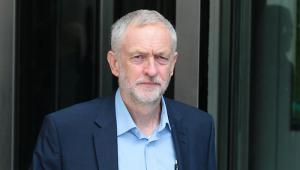
The Welsh Government’s draft budget for 2019-20 is notable in that income taxes paid by Welsh taxpayers will form a direct part of the budget for the first time.
Alongside Non-Domestic Rates revenue, Land Transaction Tax and the Landfill Disposals Tax, the devolution of £2.1bn of income taxes means own-sourced revenues now account for a fifth of the Welsh budget.
With council tax revenues, nearly £5bn of devolved and local spending will be funded by Welsh-controlled taxes.
While the UK government’s spending decisions in England will continue to be the main determinant of annual changes in the Welsh budget, devolved tax policy decisions and the relative performance of the Welsh tax base now have a direct influence on the amount available to spend on devolved public services.
To account for the devolution of income tax, a downward adjustment has been made to the Welsh block grant for 2019-20 equal to the revenues raised in Wales, leaving the size of the budget unchanged.
In future years, this Block Grant Adjustment (BGA) will change according to growth in comparable revenues in England and Northern Ireland (E&NI). This means that devolved revenues will need to keep pace with revenues in E&NI to avoid a shortfall in the Welsh Government’s budget. On the other hand, if revenues in Wales grow at a faster rate, the Welsh Government will be rewarded with extra spending power.
In our recent report for the Wales Centre for Public Policy, we explored the potential impact on the Welsh budget if trends in the Welsh tax base diverged from the rest of the UK.
Most significant will be the relative growth in employment incomes in Wales.
If private sector wages grow 0.5 percentage points a year more rapidly in Wales than the rest of the UK, the Welsh Government budget would increase by £60m a year after five years; the reverse (a 0.5 percentage points slower rate of growth) would reduce the budget by £55m after five years.
Since a greater share of the Welsh income tax base derives from public sector employment (27%) than in the rest of the UK (19%), trends in public sector pay (influenced by the decisions of the UK, Welsh and local governments) could also be an important factor in determining relative tax base growth.
Another crucial factor will be growth in the working age population.
The Welsh population aged 16-64 is projected to grow more slowly than in England and will decrease over the next two decades.
The chief economist’s report accompanying the budget finds that if these trends result in slower growth in devolved revenues, the potential impact on the Welsh Government budget could be nearly £150m a year by the end of the next decade.
The BGA mechanism has already been at work for the two smaller taxes that were devolved in 2018-19, with consequences for this year’s budget.
There was a big upward revision in the forecast for Landfill Disposals Tax based on stronger-than-expected first quarter revenue collection. The forecast for Land Transaction Tax revenues in 2019-20 on the other hand has fallen to £258m, down from £269m forecast last December.
However, since this revision reflects trends across the UK, the BGA mechanism will protect the Welsh Government budget from this fall. In fact, the total block grant adjustment for the two devolved taxes stands at £271m in 2019-20, compared with £298m of forecast revenue, resulting in a £27m boost to the Welsh budget.
There were no major changes in devolved tax policy announced in the budget. The finance secretary kept Land Transaction Tax rates constant, though like last year he will be reviewing any changes made by the UK chancellor to Stamp Duty rates in England and Northern Ireland at the budget later this month.
From next April, the UK government income tax rates fall by 10p in the pound for Welsh taxpayers, allowing the Welsh Government to set its own rates separately at each band.
Increasing income tax rates by 1p (i.e. setting all Welsh Rates of Income Tax at 11p) would have raised around £210m for the Welsh budget.
This could have provided a further 1.4% increase in Welsh Government resource departmental spending, on top of the planned 2.2% real terms increase resulting from the UK Government’s NHS funding announcement in England.
While a tax rate increase to further boost devolved spending would have been tempting, Drakeford reaffirmed the 2016 Welsh Labour manifesto commitment not to increase income tax rates during this Assembly term.
While giving evidence to the Assembly’s finance committee, he emphasised that he didn’t want to place an additional financial burden on basic rate taxpayers.
Since powers over thresholds and bands are not devolved, the option of protecting or cutting income tax only for low earners is not available as it was for the Scottish Government last year.
However, the taxation burden on households is likely to rise next year, through further increases in council tax levels.
Although some additional funding was made available for local governments in 2019-20, funding for local authorities looks likely to be cut in real terms.
In the face of rising cost and demand pressures, some authorities are considering council tax rises well beyond the Welsh Government’s informal 5% cap, following on from Pembrokeshire’s 12.5% increase last year.
As argued in our WCPP report, this highlights the need for tax levers under devolved and local control to be considered in an integrated way.
Powers to change income tax rates, the council tax system, along with powers to create new taxes such as a social care levy, warrant a broad discussion on how best to raise revenue from the Welsh tax base to pay for devolved public services.




















